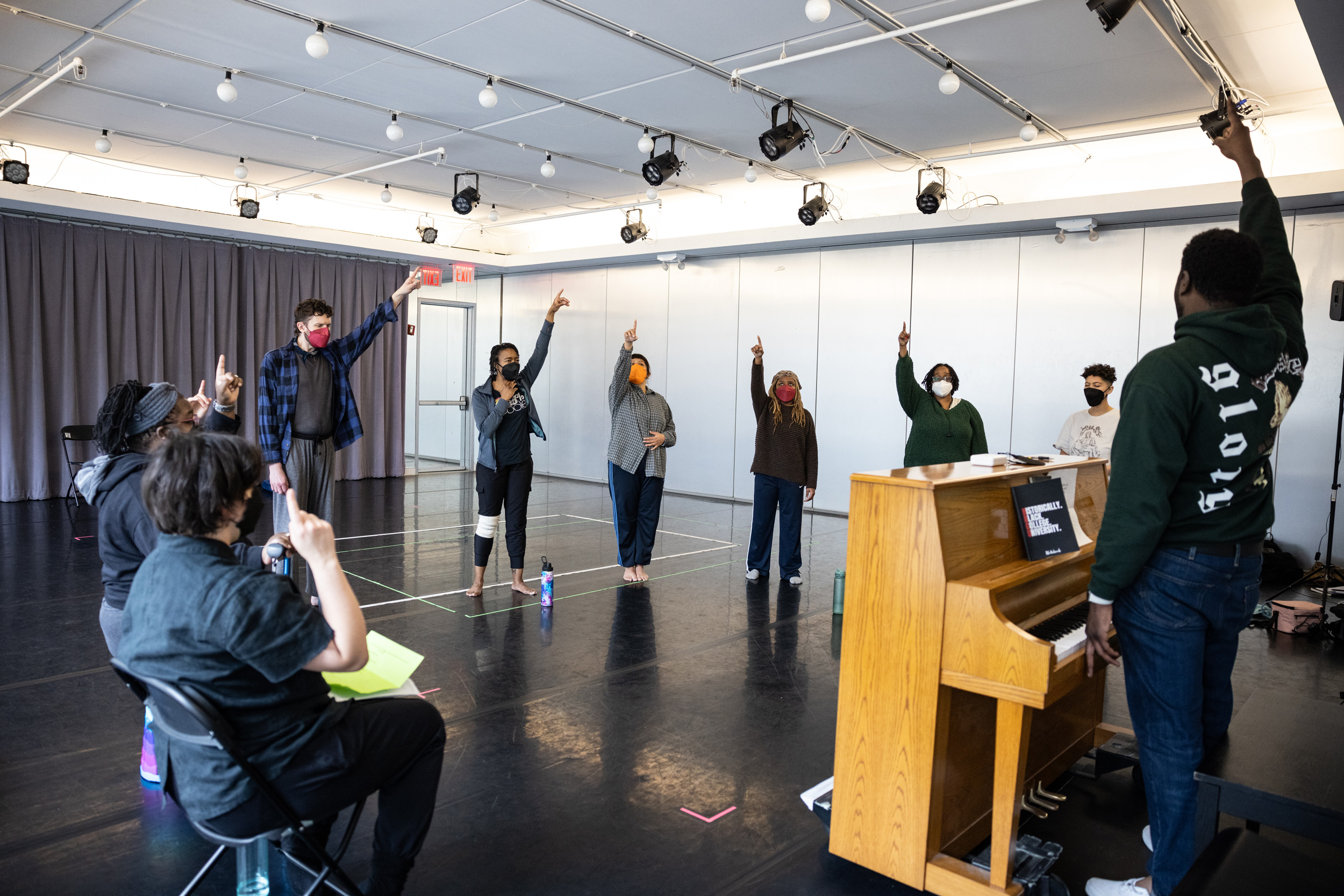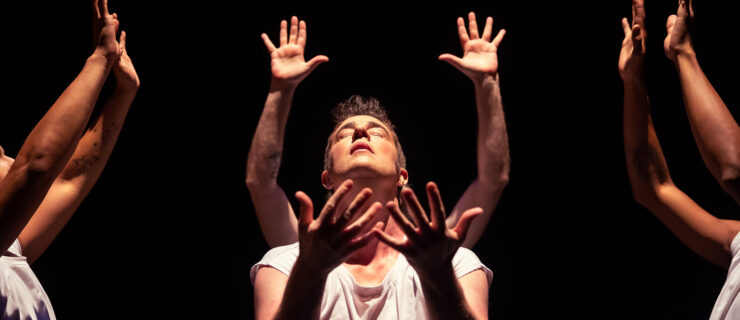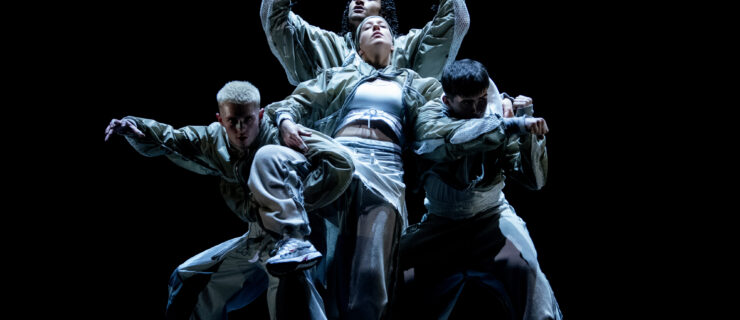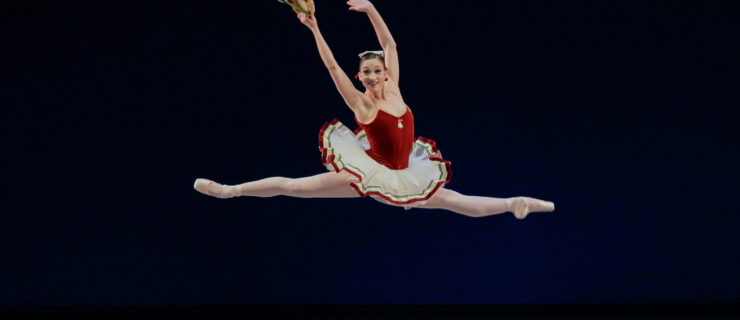Kayla Hamilton on Disability as Method and Access as Artistry
Bronx-based dancer, director, and educator Kayla Hamilton is at a transitional moment in her career. Her largest ensemble project yet, How to Bend Down / How to Pick It Up—a multidisciplinary performance exploring histories of Black disability, while imagining a liberated future—premieres at New York City’s The Shed next week before embarking on a U.S. tour in 2025. She also recently launched Circle O, a cultural organization described as “by and for Black Disabled and other multiply marginalized creatives.” In addition to these firsts, Hamilton recently received several awards, including a 2024 Disability Futures Fellowship and the 2023–2025 Jerome Hill Artist Fellowship.
Even as she gains momentum and institutional recognition, Hamilton remains deeply connected to her roots. The name Circle O honors her family in Texarkana, Texas, where her grandfather, Oscar Hamilton, was the principal of an all-Black elementary school. Hamilton only just wrapped up her own 12-year career as a public-school educator—a path she pursued in tandem with her dance work. She’s now poised to bring her powerful artistic vision to a national audience.
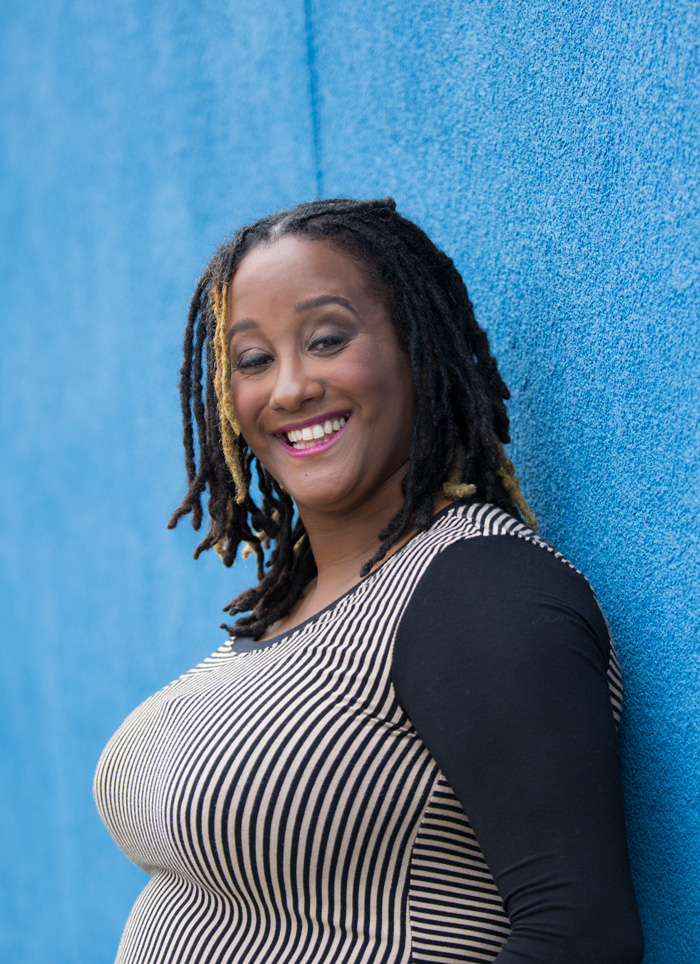
I imagine you’re in full production mode for How to Bend Down / How to Pick It Up.What has this process been like for you?
I’m nodding my head and my body is rocking forward and back from the hips. I’m looking out the window. I just had a visceral response to that question. The way my body is responding is the real answer.
I learned a lot about myself through this process, and I learned that the work I want to put into the world is a life practice. It’s beyond just dance, because we’re undoing ableism inside the practice. Dancers come into their training to get it right, to make it perfect, but disability is the method and the subject in this process. We’re really good at being with disability as a subject in the United States. But there’s a lack of understanding of disability as a method, too.
How does disability as a method show up in How to Bend Down?
When we ask folks for their access needs, we’re also asking for access intimacy with oneself. You don’t have to be Disabled to experience ableism. There may be parts of ourselves we let go of in order to be like others. And while you may be able to mask your needs and desires, go along to get along, where does that leave people who cannot make their access needs fade away?
I’m trying to recognize the whole person, each person as a human being. It makes it harder in process, because I’m not asking you to get the step “right” in rehearsal. I’m asking you to deepen into what your body is feeling, instead of pushing through just because that’s what the director asked you to do. You may dance differently every single day, and I’m okay with that.
Do you find that there’s tension between the approach you’re describing and the social and professional expectations to produce something that’s recognizable as a dance performance?
Yes, absolutely! How do I make it transparent that what’s happening in my process is what’s happening onstage? I’m doing this work to make space for every body to have access to dance as an art form. To accomplish that, we have to break away from ideas of mastery, beauty, and perfection.
We’re usually told that there’s only one option or one way to access something. I’m trying to provide multiple access points within a creative experiment. The audience can learn something about themselves, as well.
In the spirit of multiple access points, would you be willing to share some sensory impressions from your rehearsal process?
People sitting in circles, including our American Sign Language interpreters. You would hear someone say, “Did you drink water yet?” You would hear that repeatedly. Blue floor cushions and a fuzzy blanket. The smell of Tiger Balm. Laughter. You would hear, “Where are we starting from again?” You would hear Spanish language and Southern accents. A range of ages. COVID tests and masks. You would hear a lot of, “Huh! Oh…okay…hm…I see. So what you’re saying is…? Wait, hold up.”
I saw on your website that one of the questions Circle O poses is how to find joyful and playful expression while simultaneously holding the “crushing generational weight of systemic violence and oppression.” Are you navigating that question in How to Bend Down?
Some parts of the show are heavy, but we use humor to tackle those ideas. Can you imagine how tired I would be without humor? Intergenerational strength, Black, Disabled ancestors, and enslaved people gave me the strength to do what I do. There’s somebody around me, in my ear and heart space, whispering, “Push people.” I can’t go through life without pushing joy—otherwise I would burn out. And I’m not going anywhere, so I need to laugh and play.
What do you feel yourself rooting into, amidst all this growth and change?
I’m rooting in love. I’m rooting myself in my own growing edge of curiosity—whatever I’m asking of others, I’m also asking of myself. Dance is healing and spiritual, and I want every body to have access to that. I try to create containers in which people feel cared for, seen, and valued, so they can begin to dismantle hierarchies. Nonhierarchical structures in a rehearsal process are enough to shake the room. With freedom comes responsibility and accountability. I’m asking, “Do we want it?”
